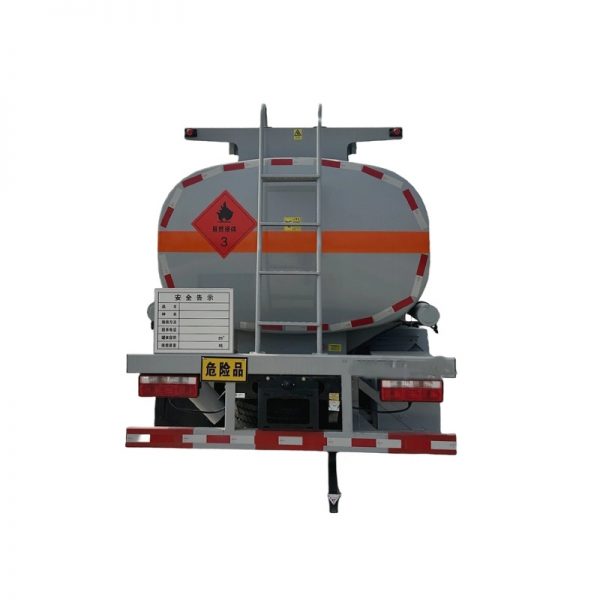Introduction:
In today's fast-paced and competitive business landscape, work trucks play a vital role in various sectors, including construction, manufacturing, logistics, and transportation. These vehicles are essential for carrying out day-to-day operations, but they also consume a significant amount of fuel in the process. As fuel prices continue to rise and environmental concerns grow, the need for work truck fuel efficiency has become increasingly important. This article aims to explore the various factors affecting work truck fuel efficiency and provide practical strategies to enhance performance while reducing costs.
1. Understanding Work Truck Fuel Efficiency:
Work truck fuel efficiency refers to the ability of a vehicle to maximize the distance traveled per unit of fuel consumed. It is measured in terms of miles per gallon (MPG) or liters per 100 kilometers (L/100km). Improving fuel efficiency not only reduces operating costs but also minimizes carbon emissions and contributes to a greener environment.
2. Factors Affecting Work Truck Fuel Efficiency:
a) Vehicle Specifications: The design and specifications of a work truck significantly impact its fuel efficiency. Factors such as weight, aerodynamics, engine size, and transmission type play a crucial role. Lighter trucks with streamlined designs, smaller engines, and efficient transmissions tend to consume less fuel.
b) Driving Behavior: The driving habits of truck operators greatly affect fuel efficiency. Aggressive acceleration, excessive idling, and speeding can significantly increase fuel consumption. Encouraging drivers to adopt eco-driving techniques, such as maintaining a steady speed, minimizing idling time, and avoiding sudden braking or acceleration, can lead to substantial fuel savings.
c) Maintenance and Upkeep: Regular maintenance ensures that work trucks operate at peak efficiency. Neglected maintenance, such as dirty air filters, worn-out tires, or faulty fuel injectors, can lead to increased fuel consumption. Properly maintaining the engine, tires, and other components can improve fuel efficiency and prevent unexpected breakdowns.
d) Load Management: Overloading work trucks not only compromises safety but also reduces fuel efficiency. Carrying unnecessary weight consumes more fuel and puts additional strain on the engine. Implementing efficient load management practices, such as optimizing cargo capacity, minimizing empty trips, and using advanced routing technologies, can significantly improve fuel efficiency.
e) Fuel Type and Quality: Choosing the right fuel type and ensuring its quality is crucial for work truck fuel efficiency. Diesel engines, known for their torque and durability, are commonly used in work trucks due to their efficiency. However, advancements in alternative fuels, such as natural gas and electric power, offer promising solutions for reducing both fuel costs and environmental impact.
3. Strategies for Enhancing Work Truck Fuel Efficiency:
a) Fleet Management Systems: Utilizing fleet management systems can provide real-time data on vehicle performance, fuel consumption, and driver behavior. This information enables fleet managers to identify inefficiencies, monitor driver performance, and implement necessary changes. Additionally, integrating GPS technology can optimize routes, reduce idle time, and minimize fuel wastage.
b) Driver Training and Incentives: Educating work truck operators on eco-driving techniques and providing incentives for fuel-efficient performance can positively impact fuel efficiency. Training programs can focus on efficient acceleration and deceleration, maintaining a steady speed, and minimizing idle time. Incentives, such as fuel efficiency bonuses or recognition programs, motivate drivers to adopt fuel-saving habits.
c) Regular Maintenance and Inspections: Establishing a proactive maintenance schedule ensures that work trucks operate efficiently. Regularly inspecting and servicing vehicles, including engine tune-ups, tire rotations, and oil changes, can prevent mechanical issues that lead to increased fuel consumption. In addition, incorporating technologies like telematics can provide real-time vehicle diagnostics, enabling timely maintenance interventions.
https://www.worktruckmaker.com/boom-truck/ ) Technology and Innovation: Advancements in technology continue to provide innovative solutions for improving work truck fuel efficiency. Vehicle manufacturers are incorporating features such as automatic engine shut-off during extended idling, regenerative braking systems, and start-stop technology to conserve fuel. Exploring hybrid or electric work truck options can also significantly reduce fuel costs and carbon emissions.
e) Fuel Management Systems: Implementing fuel management systems allows fleet managers to monitor fuel consumption, optimize fuel purchasing, and detect fuel theft or wastage. These systems provide accurate data on fuel usage, enabling the identification of inefficiencies and the implementation of targeted measures to improve fuel efficiency.
4. Case Studies and Success Stories:
Examining real-world examples of companies that have successfully improved work truck fuel efficiency can provide valuable insights and inspiration for others. Case studies highlighting the strategies implemented, the results achieved, and the lessons learned can serve as practical references for organizations aiming to enhance their own fuel efficiency.
Conclusion:

Work truck fuel efficiency is a critical consideration for organizations operating in sectors reliant on these vehicles. By understanding the various factors affecting fuel efficiency and implementing strategies to enhance performance, businesses can reduce operating costs, minimize environmental impact, and gain a competitive edge. Embracing technologies, optimizing fleet management practices, and educating drivers on eco-driving techniques are key steps towards achieving work truck fuel efficiency, benefiting both the bottom line and the planet.
